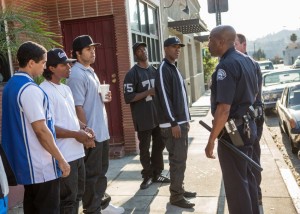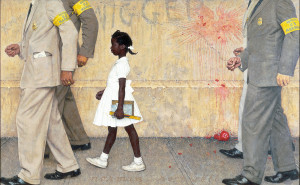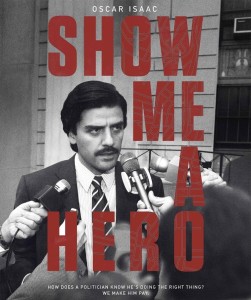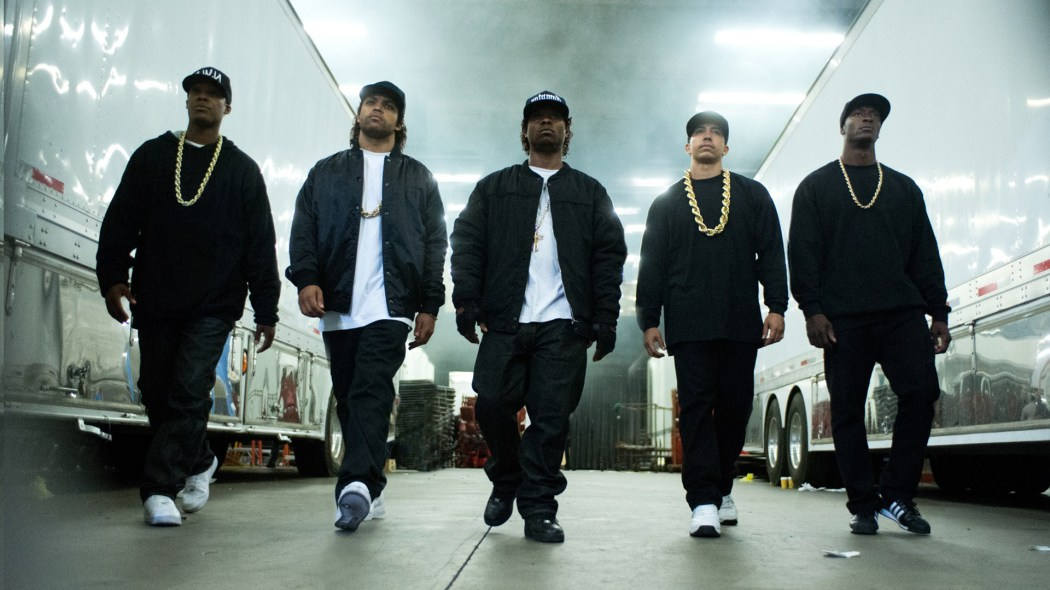Straight Outta Compton decimated the box office this past weekend. Literally starting from the bottom with its humble $30M budget, it opened to $56M making it bigger than the opening of both Mad Max and Mission Impossible. Needless to say, there’s lots of conversation about this movie – some amazing (Oscar talk), some horrific (Gawker’s expose on NWA’s assault on women). I want to talk about its impact or its potential impact in pushing our conversations about race past the polarizing headlines, talking heads and the statistics.
Can Straight Outta Compton’s commercial success and its universal appeal make people think differently about the racism that exists in America?

Compton had a heavy charge. It boasted a relatively unknown cast. It had to tell the controversial story of gangsta rap and its boldest pioneers NWA. It had to portray a time in hip-hop history that was gritty, violent and racially charged while still making the story relatable. People had to laugh, fall in love with the characters yet question the systems of racism that placed them in Compton and made them police bait for bullying and brutality. That’s a lot to do in a Hollywood film. Yet, in this moment, it feels so necessary to bring something different to the embittered conversations we’ve been having about race, violence and police activity.
Unfortunately, a lot of the world is still highly segregated. It’s easy to see people splashed across a news piece and feel like they’re a race of foreigners who look nothing like you, sound nothing like you and certainly don’t act like you. With this movie, like all great storytelling, you have an intimate knowledge of these characters.
We watch them start as innocent kids (well, everyone except for Eazy E). Trapped by circumstance, we watch them strive to be better and live their dreams, we laugh when they crack jokes and we sing along nostalgically to the songs that made our adolescence. Disguised in all its hip-hop regalia, Compton creates a safe space to explore the hard truths and remember these are kids just like you were. And when that safe space opens up to an audience that includes a mix of people – 46% Af-Am, 23% White, 21% Hisp and 4% Asian – we see the true potential and power in this opportunity.
The news headlines, the articles, the videos are powerful and polarizing – the way racial issues always have been. The stories can do better and the public is ready – willing to spend $56.1M ready – to embrace a fresh take on the current conversations. The artists and the media forces willing to take this chance, is what makes me most excited.
Check out a few more breakout stories that critique the system and touch your heart:
 The Problem We All Live With, Part 1 & Part 2: This American Life takes a look into the education system and how the system has failed so many black and brown kids. There are a few absolutely heart-breaking moments. I dare you to not shed a tear when you listen to the live recording of suburban parents listing the numerous reasons why the Normandy kids should not join their school district. A classic example of people looking past the kids and seeing only statistics.
The Problem We All Live With, Part 1 & Part 2: This American Life takes a look into the education system and how the system has failed so many black and brown kids. There are a few absolutely heart-breaking moments. I dare you to not shed a tear when you listen to the live recording of suburban parents listing the numerous reasons why the Normandy kids should not join their school district. A classic example of people looking past the kids and seeing only statistics.
Listen to both episodes HERE
 Show Me A Hero: The creator of The Wire, takes on the story of Yonkers and its battle to hold onto its segregated city limits at all costs. This writer said it best, “…from David Simon, whose seminal HBO series “The Wire,” unspooled this same weighty, unwieldy theme of institutional inequality across a tapestry of characters with beating hearts and complicated minds and tangled motivations.”
Show Me A Hero: The creator of The Wire, takes on the story of Yonkers and its battle to hold onto its segregated city limits at all costs. This writer said it best, “…from David Simon, whose seminal HBO series “The Wire,” unspooled this same weighty, unwieldy theme of institutional inequality across a tapestry of characters with beating hearts and complicated minds and tangled motivations.”
More on the mini series HERE

